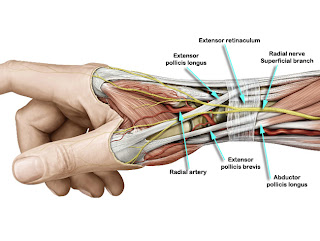POSTERIOR CAPSULAR CONTRACTURE AS THE CAUSE OF ADHESIVE CAPSULITIS
Special cases of only posterior capsular contracture revealed in the throwing athletes: In the throwing athlete, repetitive forces on the posteroinferior capsule may cause posteroinferior capsular hypertrophy and limited internal rotation. This may be the initial pathologic event in the so-called dead arm syndrome, leading to a superior labrum anteroposterior lesion and, possibly, rotator cuff tear.
In adhesive capsulitis posterior capsule is said to be more affected but in my opinion the entire capsule is affected and the arthrokinematic evaluation of joint plays must decide which is the part more affected. An article on Posterior capsular contracture was published in journal of American academy of orthopaedic surgeons. The points to remember about posterior capsular contracture are as follows:
1. Posterior capsular contracture is a common cause of shoulder pain in which the patient presents with restricted internal rotation and reproduction of pain.
2. Increased anterosuperior translation of the humeral head occurs with forward flexion and can mimic the pain reported with impingement syndrome; however, the patient with impingement syndrome presents with normal range of motion.
Management principles for only posterior capsule contractures: Initial management of posterior capsular contracture should be nonsurgical, emphasizing range-of-motion stretching with the goal of restoring normal motion. Management involves regaining internal rotation such that the loss of internal rotation is not greater than the increase in external rotation.
If reading the above said article still you think that it is only posterior capsule is contracted in frozen shoulder then you have to answer me following:
Why the inflammation is non-homogeneously located to posterior capsule?
Why the inflammation does not spread to other parts of the capsule?
Why the inflammation is non-homogeneously located to posterior capsule?
Why the inflammation does not spread to other parts of the capsule?


Comments
Post a Comment